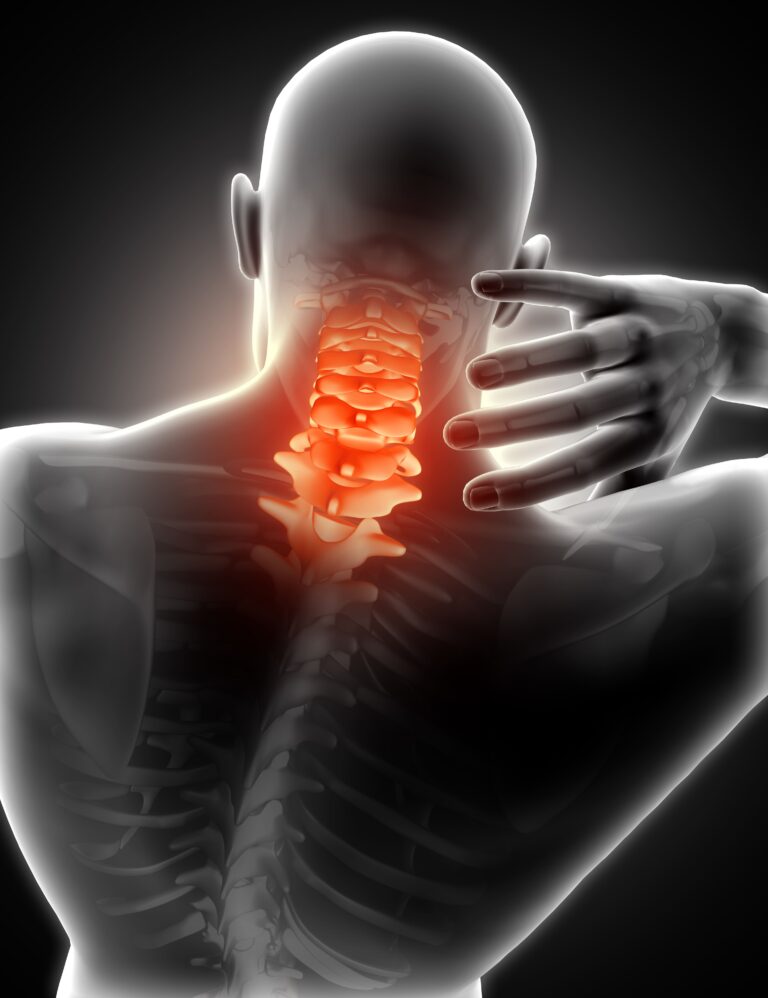Neck pain is one of the most common musculoskeletal complaints, affecting people of all ages and lifestyles. Whether it strikes after a poor night’s sleep or creeps in during long work hours, identifying the root cause of neck pain is crucial for lasting relief.
In this article, we’ll explore the most common neck pain causes, including muscle strain, pinched nerves, and even stress-related tension. We’ll also help you understand the difference between these issues and when it’s time to see a specialist.
What Are the Most Common Neck Pain Causes?
Neck pain can develop suddenly or over time. Understanding what’s triggering your discomfort is the first step in treating it effectively.
Muscle Strain: Everyday Movements That Lead to Pain
One of the most frequent causes of neck pain is muscle strain. This happens when the muscles supporting your neck are overused or stretched too far.
Common causes of neck strain include:
- Spending hours hunched over a phone or laptop
- Sleeping in an awkward position
- Carrying heavy bags or lifting improperly
- Sudden jerking movements (like during exercise or driving)
Strain-related neck pain often feels like soreness or stiffness and may limit your range of motion. It usually responds well to rest, gentle stretching, and over-the-counter medications.
Pinched Nerve in Neck: What It Feels Like
A pinched nerve in the neck occurs when a nerve is compressed or irritated, often by a herniated disc or narrowing of the spinal canal (spinal stenosis).
Symptoms may include:
- Sharp or burning pain that radiates to the shoulder or arm
- Tingling or numbness in your hands or fingers
- Muscle weakness in the upper limbs
If your neck pain includes these neurological symptoms, a pinched nerve may be the culprit. Unlike muscle strain, this condition typically requires medical evaluation and possibly imaging.
Can a Pinched Nerve Cause Neck Pain?
Absolutely. Many people wonder, “Can a pinched nerve cause neck pain?” The answer is yes — and often, it’s more than just pain. A pinched nerve can lead to chronic discomfort and functional limitations if untreated.
A doctor may recommend MRI or CT scans to confirm the diagnosis and rule out more serious issues. Early intervention can prevent further damage.
Stress and Neck Pain: The Mind-Body Connection
You might not associate emotional stress with physical pain, but the link is stronger than you think.
Neck Pain from Stress: What You Might Overlook
When you’re stressed, your body tends to hold tension in certain areas — and the neck is a common one. This can cause muscle tightness, headaches, and stiffness that mimics physical strain.
Signs of neck pain from stress include:
- A dull, persistent ache that worsens at the end of the day
- Tight shoulders and jaw
- Pain that improves with relaxation or rest
This type of pain often comes and goes but can become chronic if not addressed.
Coping Techniques That Can Help
If your pain is stress-related, some lifestyle changes can make a big difference:
- Practice deep breathing or mindfulness meditation
- Stretch your neck and shoulders regularly
- Use a supportive chair and adjust your screen height
- Take short breaks during work to move and relax
Managing stress isn’t just good for your mental health — it can also reduce physical pain.
When to Seek Medical Attention for Neck Pain
While many cases of neck pain resolve on their own, some symptoms signal a more serious issue that requires professional care.
Symptoms That Warrant a Doctor Visit
See a doctor if you experience:
- Pain lasting more than a week despite home treatment
- Numbness, tingling, or weakness in your arms or hands
- Pain following a fall or accident
- Fever, night sweats, or unexplained weight loss along with neck pain
These could indicate nerve damage, infection, or other serious conditions.
How Doctors Diagnose the Cause
Healthcare providers use a combination of physical exams and imaging studies to diagnose neck pain causes. You may be asked to move your head in different directions or describe where the pain radiates. Tests like X-rays, MRIs, or CT scans may be ordered if nerve involvement or structural issues are suspected.
Managing & Preventing Neck Pain at Home
The good news is that many causes of neck pain can be managed — and even prevented — with some simple adjustments.
Tips for Relief and Prevention
- Improve your posture: Sit and stand upright with shoulders relaxed
- Use ergonomic furniture: Keep screens at eye level and use lumbar support
- Apply ice or heat: Ice for acute pain, heat for chronic stiffness
- Exercise regularly: Strengthen neck and shoulder muscles
- Try physical therapy: A customized plan can improve flexibility and reduce recurrence
You can also read more about causes and prevention strategies in our article:
What Causes Neck Pain? Common Reasons & When to Seek Help
Final Thoughts: Know the Root, Treat the Pain
Understanding the causes of neck pain — whether it’s muscle strain, a pinched nerve, or stress — empowers you to take the right steps toward relief. If your symptoms persist or worsen, don’t hesitate to consult a specialist.
At Advanced Spine and Pain (ASAP), our team is ready to help diagnose and treat neck pain with a tailored approach to your needs. Let us help you return to a life without discomfort.





